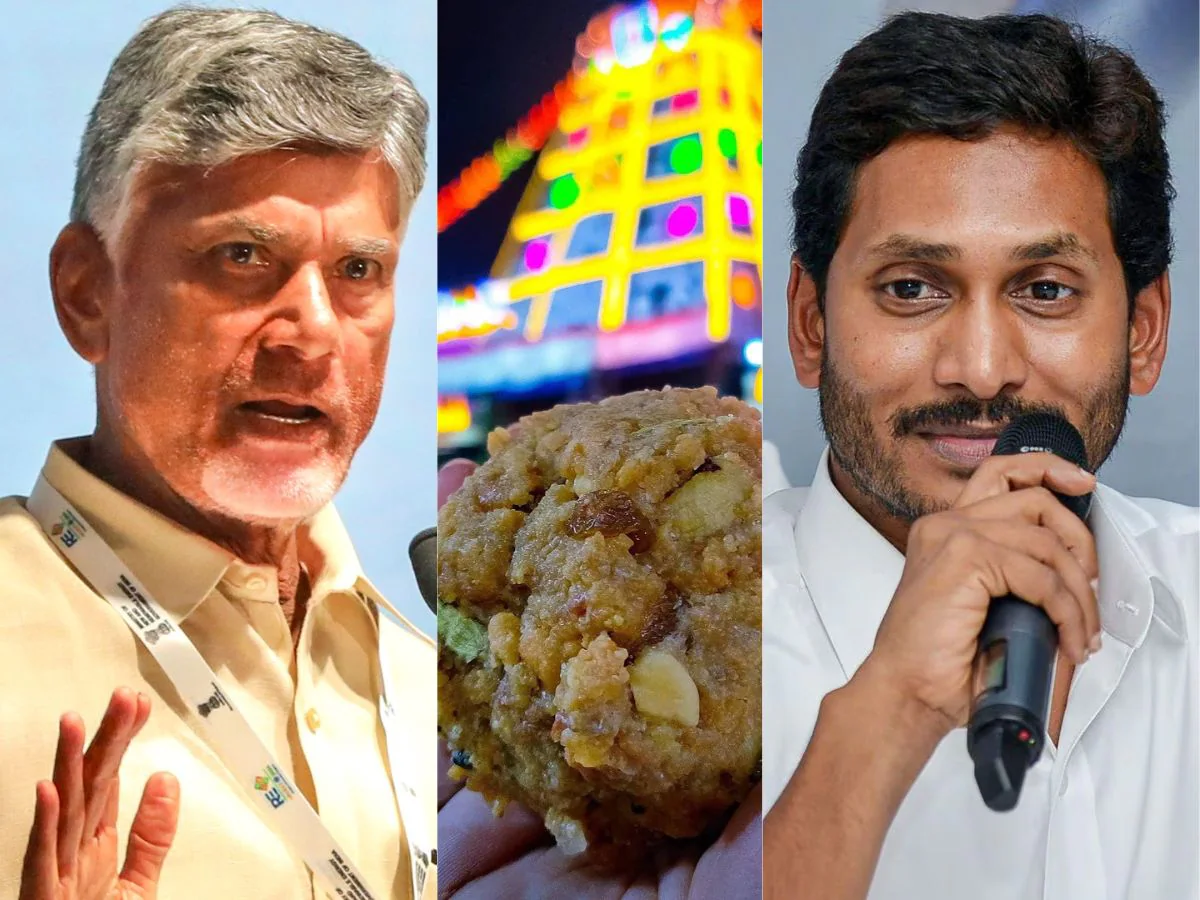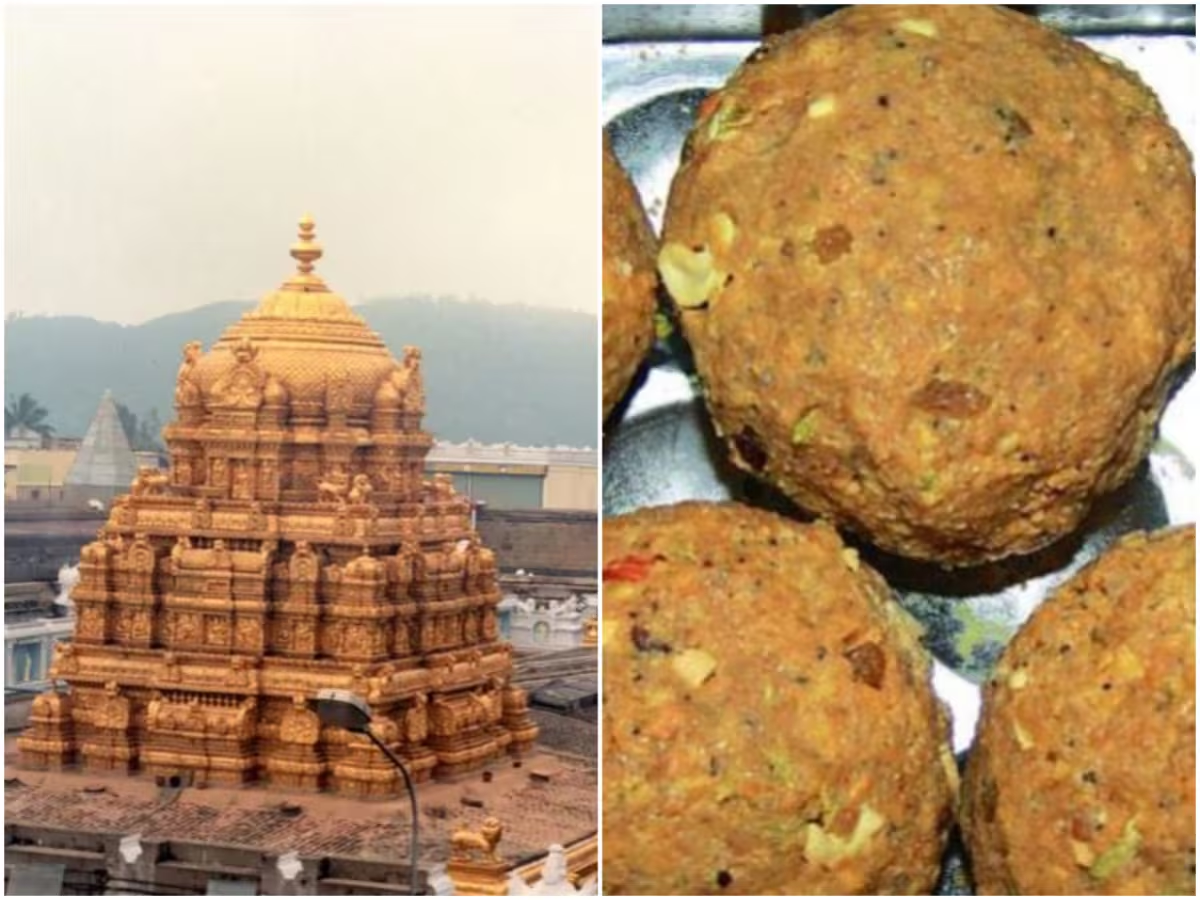- The whole country and beyond were shocked beyond wits when it was reported by no less than the Chief Minister of Andhra Pradesh that the much revered and famous Tirupati laddoo prasadam was prepared with ghee having animal products by the previous state government at the helm. No sooner than the CM made the announcement, the millions of faithful and devotees felt cheated big time and agitated for playing with their sentiments. Several prominent personalities and devout voiced their concern in no uncertain terms denigrating the Tirumala Tirupati Devasthanam for hurting the religious feelings of millions. The Andhra CM ordered a Special Investigation Team to investigate the matter.

PC : News18
- Of course, the matter reached the Supreme Court as well, which is set to commence hearing. Indeed, the previous CM called the matter politicization of Lord Tirumala questioning the findings of the alleged report of ghee containing animal products. The SC will begin to hear the case of the so-called contaminated laddoo from Oct 3, clubbing five petitions. Why so-called? Simply because the case, as SC’s questioning clarified recently, has moved a distance from the initial allegation the Andhra CM made last month. Note that the samples sent for testing were not laddoos, but ghee, for a quality check at the point of supply/delivery. Such tests are also as per the temple administration SOP. So, what is the claim of the incumbent CM then? Let’s dwelve deep here.
- Most crucially, recent proceedings in SC made it clear that the allegedly contaminated ghee was never used in the making of laddoos. For the millions of devotees worldwide, the fact established in SC is a first step to the restoration of trust. Tirupati is a league apart, and rightly so. Its laddoo has a postal stamp, a GI mark, and a patent. Doubts over the tendering process, supply chain, and oversight are a taint on the crowning jewel of temples. The allegations have also fed the demand for governments to cede control of temples. One of the five petitions riding on the alleged contamination is seeking to divest government/bureaucratic old over temples. The moot point to ponder over here is whether ceding control merits a serious relook in the first place.

PC : Times Of India
- Calls for private control of Hindu temples have never strayed too far from the judiciary in the last 100 years since Madras enacted the first such law in 1925. On the concurrent list post-Independence, at least 11 states enacted their own laws. HCs see a steady stream of cases seeking private control, or against alleged malpractices of government control. As recently as 2023 and 2022, SC refused to entertain pleas on temple control, saying it would be turning the clock back. If the petitioners’ argument has remained the same – why only Hindu temples must suffer govt control, the counters remain as relevant today as at any time in the past. One, accumulation of wealth, and two, caste. That’s a separate issue altogether. Let the SC decide on the laddoos now.





